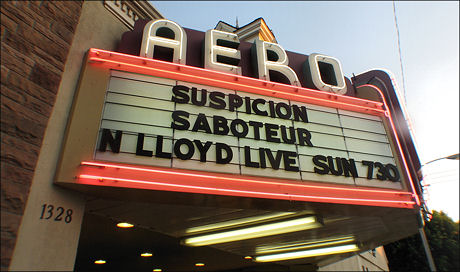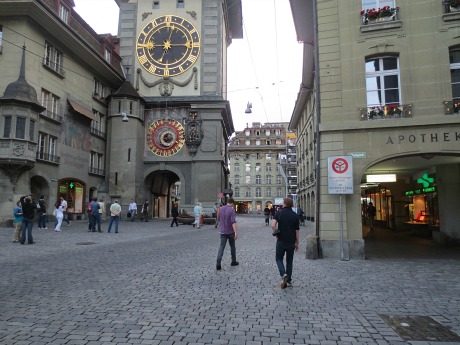Lifted out of sheer late-night boredom from Ryan Adams/Awards Daily posting that went up yesterday. Original remix artist is a guy named Pogo, who uploaded on 6.20. Not half bad as these things go.
Daily
Munich Surfers
“The Eisbach (German for ‘ice brook’) is a small man-made river in Munich. Just past a bridge near the Haus der Kunst art museum, the river forms a standing wave about one metre high, which is a popular river surfing spot. The water is cold and shallow, making it suitable only for experienced surfers. The wave has been surfed since 1972.” — from the Eisbach Wiki page. (Videos taken this evening around 8:30 pm.)
I Want What I’ve Thrown Away
I for one am limited in being able to enjoy or even appreciate a relationship movie that’s based upon one or both partners failing to understand, much less come to terms with, their core emotional longings. Everyone succumbs to denial now and then, but to live in that state week after week and month after month is pathetic. That said, this looks somewhat appealing. I missed it at Sundance.
Kenny, Pinkerton Lay It Down
Abraham Lincoln: Vampire Hunter “constructs a fantasy scenario that relentlessly trivializes the Civil War, slavery, the Emancipation Proclamation and the cultural divide,” MSN’s Glenn Kenny notes.
“[It] posits, for instance, that slavery itself was not the creation of human beings just like you and me but the work of blood-drinking undead beings intent on world domination. And that the bloodshed at Gettysburg was at least in part the work of vampire Confederate soldiers who could make themselves invisible and pierce through the hearts of Union soldiers without them even knowing it. And that one of the most genuinely tormented and morally acute leaders the United States has ever known as an ax-wielding avenger and destroyer of supernatural beings.
“Well, that’s kind of a dicey proposition. And Abraham Lincoln: Vampire Hunter, written by Seth Grahame-Smith, adapting his own popular novel, and directed by Russian master of action excess Timur Bekmambetov, does not make good on it. It constitutes a moral sin, if not an outright moral crime, and commits a grave insult against history.”
Give it to ’em, Glenn!
Abraham Lincoln: Vampire Hunter is currently running at 33% positive at Rotten Tomatoes. I would quote the Metacritic score but the shitty wifi in this cabin refuses to bring up the page.
My favorite AL:VH quote is from Village Voice critic Nick Pinkerton: “The logical outer limit of the whole horror-as-metaphor thing, Abraham Lincoln: Vampire Hunter shoehorns the entire personal history of the 16th president into mega-budget The Legend of the 7 Golden Vampires chop-socky/grindhouse schlock, and casts the seditious South as a nation of slave-sucking undead. Possible resulting ‘fun’ is only slightly mitigated by contemplation of the wearisome decadence of American popular culture.”
Packing Up
Imagine walking out your front door every morning and seeing this, only in IMAX 3D on a 120-foot-wide and 90-foot-tall screen. It’s pretty close to impossible not to be in a fairly good mood with Staubbach Falls in front of you 24-7. But now we’re saying goodbye to this splendor and heading for Munich.
Aero DCP Track
Santa Monica’s Aero, my favorite Los Angeles theatre by a mile, has completed a major digital upgrade and will soon be screening mostly DCPs instead of celluloid. (There will be, no doubt, occasions when they choose to show a 35mm or 70mm film through their Norelco AAII film projectors.) To celebrate this new technological enablement, the Aero will show off their digital hardware with a “17-Night Series of Classics and Digital Restorations” from 7.12 through 8.4.

Be advised that the Casablanca screening on Friday 7.20 will almost certainly be the darker, distinctly grainier 70th anniversary version that constituted the last Bluray release. Get used to this, suck it in — grain-monk theology has won over the corporates along with masking ’50s films with 1.85 prison-cell croppings. If I was Absolute Bluray Dictator I’d order that two versions of all restored classics — “grainmonk” and “moderately shiny” — be issued simultaneously along with “headspace” and”1.85 fascist” versions. Then there wouldn’t be any fights.
Grover Crisp‘s M.I.A. restoration of From Here To Eternity will play on 8.2. The high-def restoration was first screened in the fall of ’09 and then in Cannes in May 2010, but it’s never turned up on Bluray.
Five years ago I wrote the following: “The restored Aero Theatre — the westside flagship for the American Cinematheque — is a single-screen venue on an affluent, relatively quiet Santa Monica boulevard. Nice people run it and nice people — a mostly older crowd — are always there. An Italian ice store is just down the the street, an antique furniture store that Mary Steenburgen is a co-proprietor of sits next to it. The whole quiet-community atmosphere is like a Valium. The vibe at the Arclight or the Bridge or the Monica Plex on Second Street is fine, but the Aero feels like yesteryear.
“Last night’s experience was very much like seeing a movie on a quiet summer night in a small town in the ’60s or ’70s. The Aero is a remnant of the modest- sized, personably-managed theatres that you could find in every last small town in America before the plexing boom of the ’80s. On top of which the sound and projection standards at the Aero are superb, and they’re always showing good films there.”
Seen One Stunning Mountainscape, Seen ‘Em All
Yesterday afternoon’s hike happened in an elevated (about 9000 feet) region north of Grindelwald, which we got to via four-person cable cars. I forgot my walking stick so I used a fencepost that I found along the trail. Honestly? I hate 45 degree inclines that go on forever. I hate that feeling of your calf muscles screaming for dear life. And I don’t much care for getting rained on. But after it’s over, I always feel good. Depleted but good.


Good God
We all understand from a business perspective why Liam “paycheck” Neeson is committed to making this shite until the string runs out. Striking the iron while hot, etc. Plus the brawny machismo thing led to his wolf-hunter role in The Grey. What I don’t get is why Neeson seems to have abandoned playing vulnerable emotional guys. If he could just play one Husbands and Wives-type role for every four or five bullshit actioners, all would be forgiven.
Story
I’m not saying Travyon Martin assailant George Zimmerman is telling the truth in this video, but my gut reaction is not to dismisss his story out of hand. I’ve read that he’s a dicey fellow in a couple of respects, but he might be telling it straight here…maybe. I have no dog in this. Just looking for reactions.
Zermatt Can Bite Me
Ever since seeing my first image of the Matterhorn when I was eight or nine I’ve wanted to stand in its shadow and just go “whoa.” So yesterday the guys and I drove the wrong way (i.e., four hours over winding mountain roads) from Lauterbrunnen to Zermatt, the affluent ski town that lies at the base of it. The trip turned out to be mostly a disaster. Because of an innocent mistake I almost got slammed with a 350 Swiss franc traffic ticket — thank God I was able to talk my way out of it.





